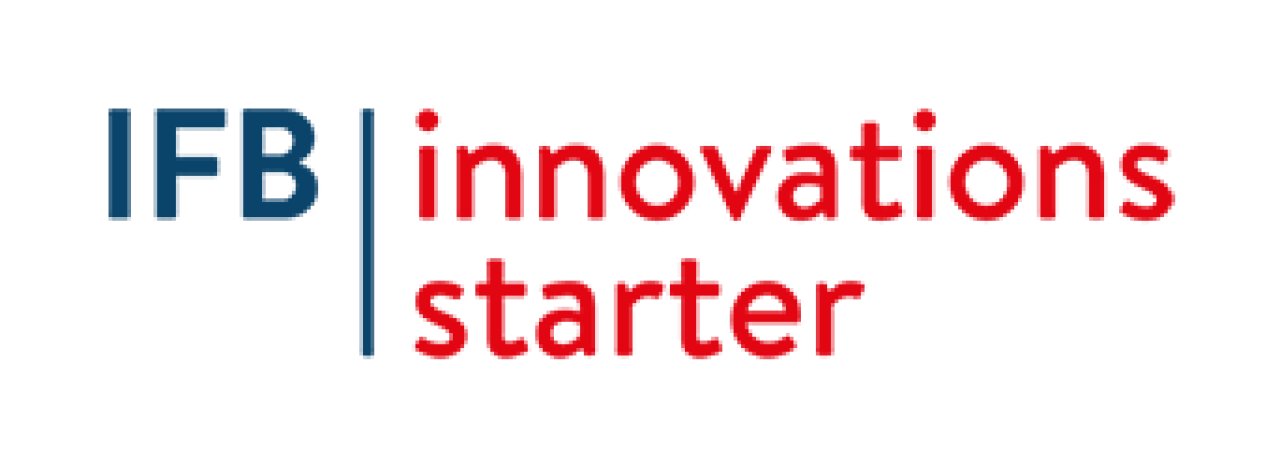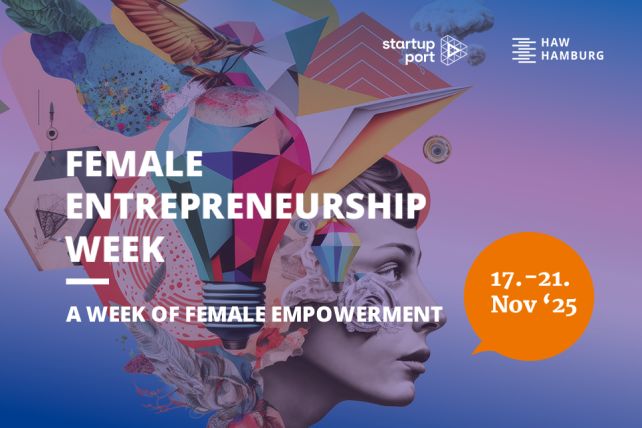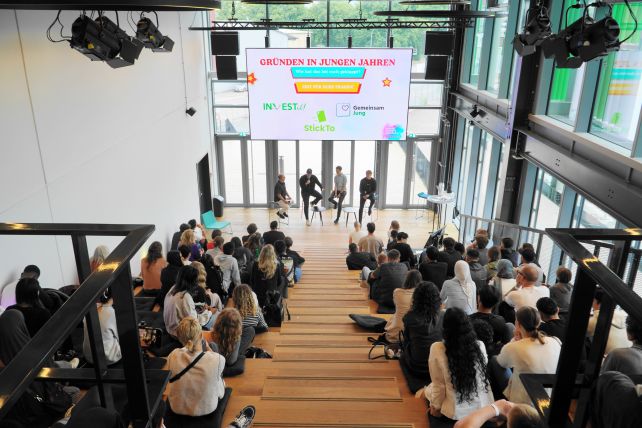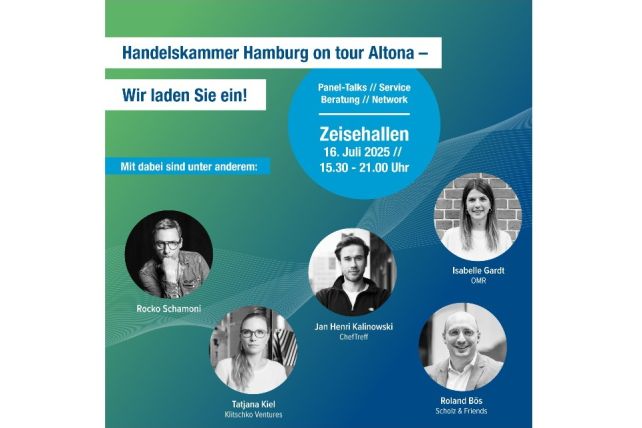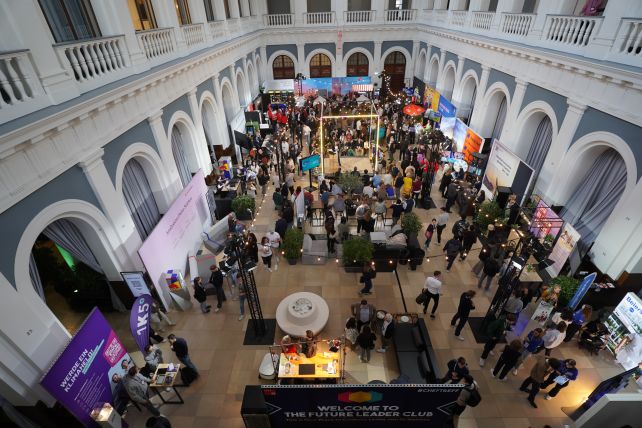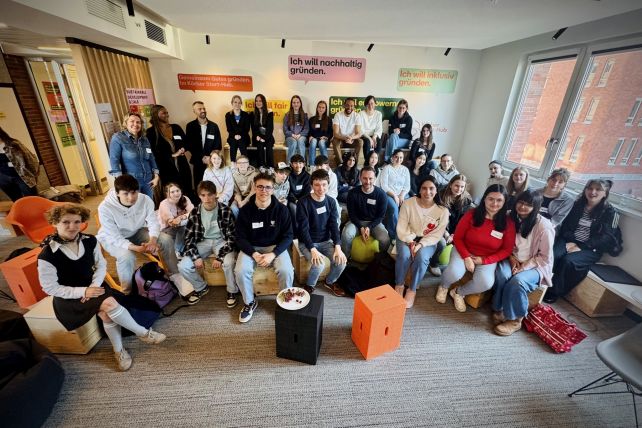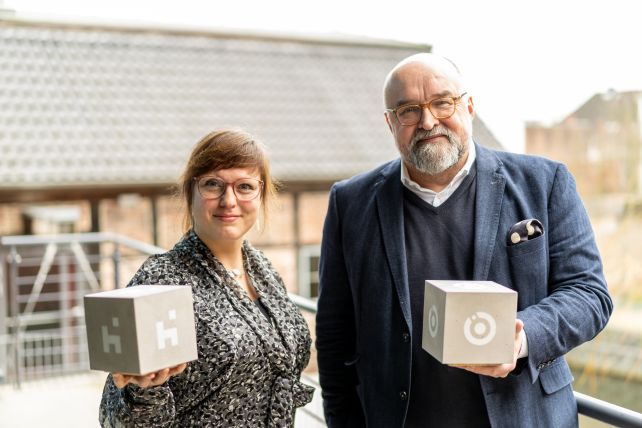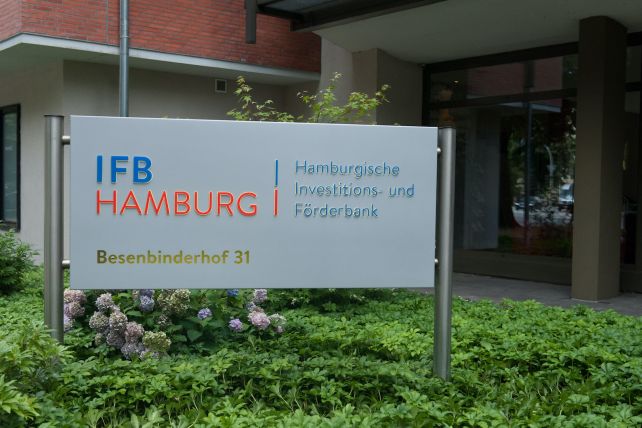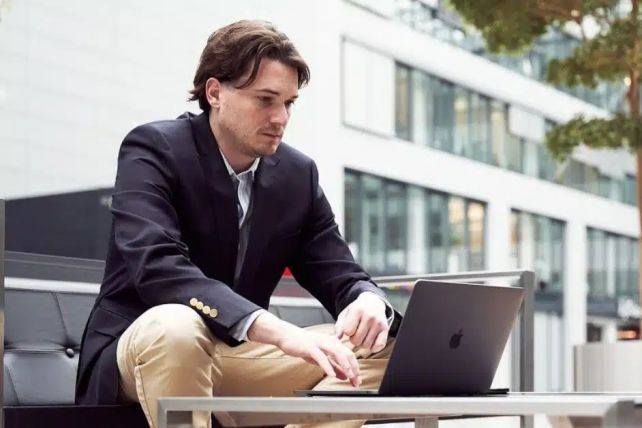Tomorrow makes banking sustainable
Hamburg has a long tradition as a financial centre. Germany's first owner-managed private bank, Berenberg Bank, was founded here in the 16th century and still exists today. Commerzbank also has its origins in the Hanseatic city. The digital bank Tomorrow is well on its way to continuing this tradition, having already raised over 50 million euros in financing rounds and gained over 100,000 customers.

Three founders with a lot of startup experience
In the beginning, the company, which is now called Tomorrow GmbH, was called Goodfolio GmbH. It was based on the term “portfolio”, which in the financial world describes a combination of investment assets such as shares. The original idea was to create a fund that invested exclusively in sustainable companies. It came from the software entrepreneur Inas Nureldin, who had already founded companies in Egypt and Germany. He found two experienced co-founders for his new project through his circle of friends.
The cultural scientist Jakob Berndt was extremely successful as a social entrepreneur with Lemonaid Beverages GmbH, which was launched in 2009. The Lemonaid and ChariTea brands have permanently established themselves on the beverage market and helped him winning the Deutsche Gründerpreis in 2016. In 2017, Jakob retired from his company to take a break, but Ines was able to convince him of his idea. Just like Michael Schweikart, a financial expert who also had startup experience, including from jobs4refugees, a job platform for refugees.

The bank was only plan B as a business idea
A trio had come together that had a great deal of expertise in entrepreneurship, product development, financial knowledge and sustainability. Nevertheless, they soon changed their intended business model, as setting up a sustainable fund proved to be too complex to start with. Instead, the three decided to begin with the basic financial product par excellence: the current account. Tomorrow gave its first sign of life in spring 2018 when it announced its cooperation with Solarisbank. Solarisbank, which now trades as Solaris SE, operates a banking-as-a-service platform that enables other companies to offer financial services even if they do not have a full banking license. This paved the way for Tomorrow's current account.
The search for test customers in summer 2018 via social media quickly brought together 300 people. The first payment with a debit card was a milestone in Tomorrow's history that is still remembered fondly today. It was proof that the software works! That was at the end of 2018, and the official launch of the current account is scheduled for March 2019. As is well known, banks invest the money from their customers' accounts in order to make a profit. Criteria such as environmental protection and social compatibility often only play a subordinate role. Tomorrow, on the other hand, pays explicit attention to sustainability in its investments and has compiled a catalogue of more than 100 investment criteria based on the Sustainable Development Goals (SDGs) of the United Nations, among others. By the end of 2023, Tomorrow had invested 140 million euros in sustainable projects via account deposits.

An own environmental project in South Africa
In addition, every time a payment is made with a debit card, a small amount goes towards a renaturation programme in South Africa. Tomorrow 2022 initiated this itself in order to have better control over the project, because not everything called reforestation is actually environmental and climate protection. In this project, the spekboom (bacon tree) is planted on unused and degenerated agricultural land. An ecosystem for numerous species is to be created around the hardy plant. Two million euros have already been invested in the project, creating numerous jobs in a region with a high unemployment rate.
Over the years, Tomorrow has built up a very different kind of ecosystem through crowdinvesting. The first campaign in October 2020 had already raised three million euros before it was even officially launched. The next campaign in 2021 was even more successful and flushed in eight million euros within 24 hours. In total, over 14 million euros were collected from around 10,000 investors in three rounds, a record figure for Germany. The next crowdinvesting round was launched on November 14, 2024, this time as an ongoing campaign. This should further strengthen the cohesion of the crowd, which already has voting representation on the Advisory Board.

More than 50 million in financing rounds
Even before the first crowd investment, Tomorrow had already closed a financing round of 8.5 million euros. The London-based Environmental Technologies Fund (ETF), energy entrepreneur Matthias Willenbacher and half a dozen other business angels were involved. In the press release from November 2019, Michael Schweikart commented on the success as follows: “Since the start, we have proven that we skilfully combine the two major topics of ‘mobile banking’ and ‘sustainable finance’ and have met with great interest on the market. The financing round that has now been concluded will enable us to grow even more strongly in future and expand our offering. The financial sector must live up to its responsibility in view of the current global challenges. We started because we want to change the world for the better - and money is a powerful lever. Tomorrow has only just begun.”
The next financing round took place in September 2021 and amounted to 14 million euros. New on board were the family office of the Hamburg-based Büll family, Abacon Capital, and Signavio founder and climate tech investor Torben Schreiter. Its latest investment of just under EUR 5 million euros Tomorrow anounced in October 2024. Existing investors such as ETF and Abacon Capital were predominantly involved, with IFB Innovationsstarter GmbH participating for the first time. In addition, existing convertible loans in the double-digit million range were converted. In total, the financing volume thus exceeded the 50-million-euro threshold.
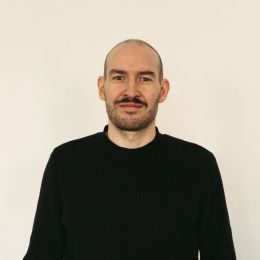

Tomorrow is now profitable and has its own fund
At the same time as the current financing round, Tomorrow reported that it was profitable for the first time in the months of June to September 2024. According to the press release, this applied at least to the EBITDA and net income level, before taxes and in relation to net profit. Tomorrow now does business with over 100,000 customers, who can choose between three account variants. The version with the highest monthly fees includes a wooden card, which Tomorrow introduced in 2020. It is made of 80% cherry wood and therefore largely dispenses with the usual plastic.
Meanwhile, Tomorrow has also fulfilled its original dream of having its own investment fund. In 2022, the neobank launched the Tomorrow Better Future Stocks fund. This proved to be as complex as initially expected, with a total of five parties involved in its management. With a volume of just over 12 million euros, it is relatively small, but has performed well this year at least. Current accounts remain the core business for the team of around 100 people and the company's headquarters remain in the old banking metropolis of Hamburg.
-
Public financing in Hamburg
As a founder in Hamburg, you can access an attractive range of advisory services and an excellently developed funding landscape. Various public funding programmes support your startup financially and with advice, depending on the development phase of your company.
-
Support programmes for startups
In addition to the IFB's public funding programmes, Hamburg offers founders an excellent infrastructure for further financial support. Numerous offers such as startup consulting, accelerator and incubator programmes enable startups to grow and drive innovative ideas forward.


